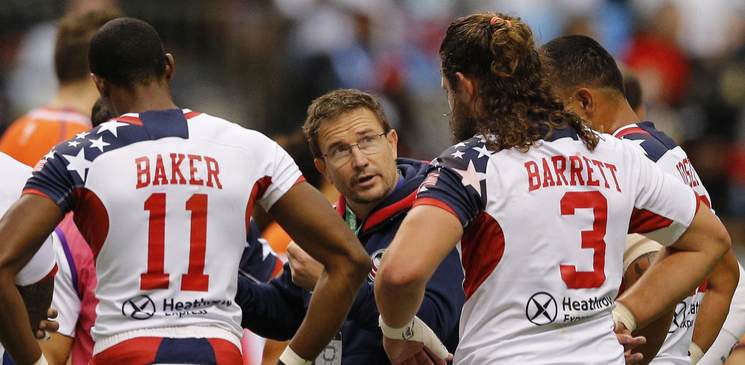
Rugby League has many rules. Many things need to be understood, including Lineouts, Goals, and Scoring system. Here are some key points to keep in mind. These rules will help you get to know the game better if you are new to it. In this article, you'll discover the basics of Rugby League and how they apply to you and your team.
Lineouts
Lineouts are a major part of rugby league games. They are played in various parts of the field and require a team to line up in a specific formation to throw the ball. To get the ball in their opponents' hands, throwers may use different speeds or trajectory. Lineouts help teams attack specific areas of the field. The lines are typically prepared ahead of time by both the teams and the caller before each game.
In rugby league, a lineout can be a difficult and complex process. Before you create a lineout plan, make sure to discuss it with your team leaders. It is important to keep your lineout philosophy easy and understandable for your players. Your tactics should be refined as the season progresses.
Goals
There are two types of rugby league goals: penalty kicks (or field goals) and one that is a penalty. A field goal is a kick through goalposts. While a penalty kick is made after the ball has touched the grass, it is called a penalty kick. Penalty kicked are worth two points for rugby league and three for rugby union. Penalty kicks can be awarded to a team for committing a penalty. They can choose to restart play from the spot they made the penalty, or try to kick a penalty. A penalty kick is made by kicking the ball through the goalposts at the spot where the team committed the penalty. The kicker may use a punt ball, place kick, or drop kick to get the ball over the goalposts.

A team or teammate scores a try. It is usually the difference between winning and losing a match. During the early history of rugby, goals had no points. However, their value has increased over the years. Even though a goal still has bonus potential, it is no longer as important than a try in modern rugby league.
Scoring system
The scoring system in rugby league varies depending on the rules of the sport. There are three types of penalties: goals, tries, and goals. If the try is converted, it is considered a "goal". If the penalty kick isn't converted into a goal, it is considered a penality. A penalty kick may also be considered goal if it is thrown over the line.
Each team can have six members in a scrum. This restarts the game. Scrums are usually formed after a forward pass, 'knocked on', or a fumbled ball. You can also create a scrum when a player tackles you or kicks the football into touch.
High tackles
High tackles are a serious infringement of rugby league rules. High tackle refers to a player who brings down a ball carrier beyond their legal target area. This type is not recommended as it could cause head and neck injuries. Each step of the process is used to determine the severity of the offense. High infringements are those where the player's head touches the neck of the ball carrier.
University of Sydney researchers question the validity of the claim that high tackles could break necks. The researchers conducted a case investigation in which Cronulla Sharks first-grade players made contact at a high speed while trying to make the tackle.

Substitutes permitted
Substitutes can be used in rugby league to replace players who are injured. A replacement can either replace a front-rower or a shaker. Professional game substitutes must be capable to replace props as well as hookers. Although the replacement for the front row can continue the game, coaches may take advantage of the versatility that a front-row replacement offers. Andrew Porter from Ireland, for example, was once a loosehead prop but now plays as tighthead.
Substitutions can be temporary or permanent in rugby league. If a player gets injured, he is temporarily replaced and must return to the bench. A permanent substitute can only be used if the substitute's injury lasts more than 15 minutes.
FAQ
Why do people enjoy extreme sports?
Extreme sports can be enjoyed for many reasons.
First, they provide thrills.
Second, extreme sport is exciting. They tend to be unpredictable and sometimes scary.
They allow people to push themselves beyond their limits. You never know what will happen next!
Fourth, they allow people to get away from everyday life.
Fifth, they allow people the freedom to express themselves through their unique art forms. Extreme sports include surf carving, which is an artistic expression.
They help people stay fit. Many extreme sports are good for your body. Skydiving helps with coordination, balance, as well strength.
Extreme sports are also fun. It's fun to be part of a group and have a good time, especially when everyone has a good time.
What can go wrong during extreme sports?
Participating in extreme sports can lead to many different scenarios. There are many possible outcomes, including falling off cliffs, injury, and being captured by the media.
However, if you are aware and take precautions, it should not be a problem.
Just make sure you have the right equipment.
You will receive medical attention if you are hurt while competing in extreme sports. You will be treated for injuries if you need it.
Sometimes injuries can happen without warning. Sometimes, bad judgment can lead to injuries.
For instance, climbing too close to a cliff edge may slip over the side. Hypothermia may also be possible if you fall into icy waters.
Sometimes accidents happen because of the mistakes of others. In some cases, injuries can be caused accidentally by other parties.
And sometimes accidents happen because of bad luck. As you fall, you might hit a boulder. You may also be struck by lightning.
What companies are most likely not to sponsor extreme sport?
Sponsors of extreme sports events such as BMX racing and skateboarding are often large corporations with huge advertising budgets. They are also active in the communities they serve. For example, Coca-Cola sponsors many local sporting events and other activities throughout North America. The company sponsors youth programs and camps on both the national and local level. Coke also sponsors the annual Coca-Cola Rock'N'Roll Marathon in New York City. This event attracts approximately 100,000 runners from all over the world.
Who is the one who participates in the extreme?
Extreme sports can be enjoyed by people of all ages. Extreme sports interest children just as much,
You can play tag and dodgeball with your younger siblings. Older children may join teams to compete with others.
Adults can either participate in team sports or individual sports. There are plenty of ways to find a team to play on.
To learn how to play, you will probably need to ask someone else who has.
Statistics
- Approximately 50% of all wakeboarders have been participating in the sport for 1-3 years. (momsteam.com)
- According to the United States Parachuting Association, about 21 people die yearly from skydiving. (livehealthy.chron.com)
- Since 1998, overall participation has grown nearly 25% - from 5.2 million in 1998 to 6.5 million in 2004. (momsteam.com)
- Nearly 30% of all boardsailors live in the South, and more than 55% of all boardsailors live in cities with a population of more than two million people (momsteam.com)
- Based on the degree of difficulty, the routine is scored on form and technique (50 percent), takeoff and height (20 percent), and landing (30 percent). (britannica.com)
External Links
How To
How can you master parkour skills?
Parkour can be described as a free-running technique in which people run through obstacles, such as trees, fences or buildings. Parkour is a highly popular sport that has millions of participants. There are many types of parkour, including wall climbing, obstacle course and freestyle.
Any activity that increases your health and physical fitness can be called fitness. This could include going to the gym, exercising cardio, or simply walking. Parkour is considered an athletic sport since it requires athletes who can use their body strength, speed balance, coordination, agility, and coordination.
Here are some tips for beginners who want to start training parkour:
-
Do not choose a location with stairs or any other places that could be dangerous. Flat ground is best, so avoid hills. However, if you have the ability to climb up a tree then do so.
-
You should wear shoes that are made from leather and rubber. Try them all to find the one that feels right for you. The right shoes can make or break a parkour session.
-
Keep hydrated during practice sessions by bringing water bottles and snacks.
-
Warm up before you start a parkour class. This means you should warm up your muscles before jumping into the action. Begin slow, then increase the intensity to ensure that your muscles are well-prepared.
-
Jumping is not about relying on your arms and legs. Instead, use your core and back muscles more to overcome obstacles.
-
Do not overdo it. Take breaks whenever you need to. This will help you recover from your workout without getting hurt.
-
While practicing parkour, listen to music. Music helps you to relax and concentrate.
-
Stretch your muscles to prevent any injuries after each session.
-
Always clean up after yourself, especially if you're practicing in public spaces. This will ensure that you don't cause harm to anyone else.
-
You can keep track of your progress by keeping a log. This will allow you to keep track of your strengths and weak points.
-
Parkour is meant to be enjoyed. Enjoy the journey and don't let fear of falling stop you from enjoying it. Do not be afraid to fall. Get up and keep going.
-
Every day, learn new techniques and tricks.
-
You should eat healthy foods. You will gain muscle mass quicker if you eat a lot of protein.
-
Look for a mentor. Mentors will teach you how to do certain moves, as well as offer tips and advice about improving your skills.
-
Do not be afraid to ask for clarifications. The people who love to share their knowledge with others are always happy to answer questions.
-
Practice makes perfect. Train whenever you can.
-
Have fun
-
Last but not less, remain safe!